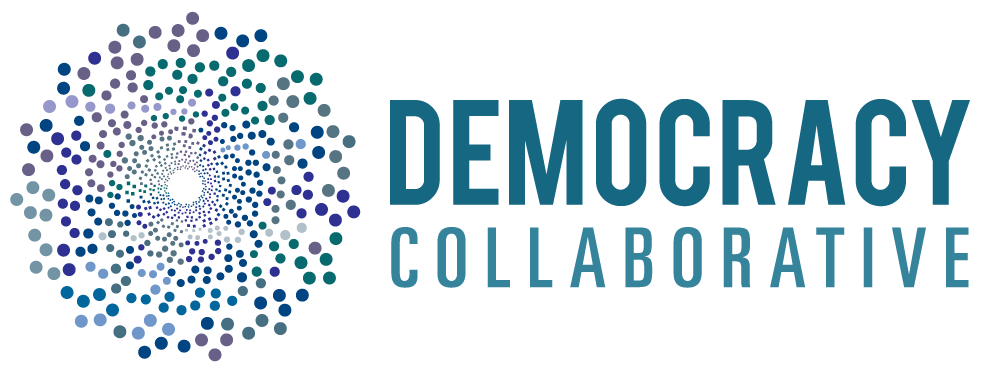New Community Wealth Building Provisions Signed into Law by President Biden
The CHIPS and Science Act that President Biden signed into law this month included community wealth building provisions that The Democracy Collaborative helped develop with Congressman Jamaal Bowman (NY-16).
The $52 billion CHIPS and Science Act includes a new $10 billion Regional Technology and Innovation Hub Program that creates 20 geographically distributed hubs in areas that are not currently leading technology centers. Thanks to the leadership of Rep. Jamaal Bowman, the original bill was amended to clarify how the regional hubs can build community wealth in their regions by creating ecosystems of local small businesses and promoting employee ownership, making them genuine anchors of their communities.
Major community wealth building provisions include:
Community Wealth Building Plans. As part of a competitive application process, regional hub candidates are encouraged to include plans for how their institutions will “build and retain wealth in their region”, and then the Secretary of Commerce is instructed to consider those plans when awarding regional hub designation, and awarding grants associated with the program.
Equitable Local Procurement. As part of a competitive application process, each hub candidate is encouraged to include information about their local procurement goals, with the goal of “creating new economic opportunities for economically disadvantaged and underrepresented populations,” and “building and retaining wealth in the region.”
Worker Ownership. As part of their competitive application process for economic development grants, regional hub candidates are explicitly encouraged to use funding to support institutions that expand worker ownership, like new and existing state worker ownership centers and others who advise and finance worker ownership transitions.
Locally Rooted Finance. Community Development Financial Institutions (CDFIs), Minority Depository Institutions (MDIs), and employee ownership centers are defined and explicitly included as eligible consortium partners for regional hub designation.
“Building community wealth is a key goal of this bill, and my amendment seeks to reinforce that goal,” said Rep. Jamaal Bowman in a 2021 committee speech introducing his original community wealth building amendment. “If we want to democratize our economy and create new industries in a way that brings everyone in, one of the best ways to do so is to put employees in the driver's seat, by giving them ownership and decision-making stakes in the companies where they invest their time, and talent. My amendment clarifies that local procurement is a crucial tool in this regard, and that mission oriented financial institutions like CDFIs and minority lenders can play an important role in supporting such business ecosystems.”
The content of this amendment was drawn from the theory and practice of community wealth building, developed by The Democracy Collaborative and our allies over the last two decades, from Evergreen Cooperatives in Cleveland, to a city-wide approach in Preston, England, to our more recent efforts in Chicago. Developing and advocating for these provisions was a team effort supported by the advocacy and policy expertise of US Federation of Worker Cooperatives (USFWC), National Cooperative Business Association (NCBA), and The Century Foundation.
Though modest, these provisions are immediate gains that only strengthen our hand in future policy fights. This effort also serves as a model for how one of the most progressive members of Congress can win bipartisan support for progressive policies within status quo political alignments.
Key legislative language from the final CHIPS and Science Act pasted in italics below. Full CHIPS and Science Act text can be found here.
Community Wealth Building Plans. As part of a competitive application process, regional hub candidates are encouraged to include plans for how their institutions will build and retain wealth in their region, and then the Secretary of Commerce is instructed to consider (shall consider) those plans when awarding regional hub designation and awarding grants associated with the programs.
Regional hub applicants are encouraged to submit:
A plan for partnering and collaborating with community development financial institutions and minority depository institutions, labor organizations and community groups, worker cooperative membership associations, local and state employee ownership and cooperative development centers, and other local institutions in order to promote employee, community, and public ownership in the clean energy sector, and advance models of local economic development that build and retain wealth in the region;
Applications for regional hub designation, and grants, are then assessed based on:
The likelihood of positive regional economic effect, including increasing the number of high wage domestic jobs, creating new economic opportunities for economically disadvantaged and underrepresented populations, and building and retaining wealth in the region.
Equitable Local Procurement. As part of a competitive application processes, each hub candidate (eligible consortium) is encouraged to include information about their local procurement goals, in line with the the following:
How the eligible consortium considers opportunities to support local and regional businesses through procurement, including from minority-owned and women-owned businesses.
Worker Ownership. As part of their competitive application process for economic development grants, regional hub candidates are explicitly encouraged to use funding to support institutions that expand worker ownership, like state worker ownership centers. The “Use of Funds” section includes:
The development and growth of local and regional businesses and the training of entrepreneurs, which may include support for the expansion of employee owned businesses and cooperatives.
Locally Rooted Finance. Community Development Financial Institutions (CDFIs), Minority Depository Institutions (MDIs), and employee ownership centers are defined and explicitly included as eligible consortium partners eligible for regional hub designation.
The term ‘covered consortium’ means an individual or group of individuals in partnership with a government entity including a State, territorial, local, or tribal government or unit of such government, and at least 2 or more of the following additional entities: …
(I) a community development financial institution or minority depository institution;
(J) a worker cooperative membership association or state or local employee ownership or cooperative development center;
For more information about community wealth building click here.

